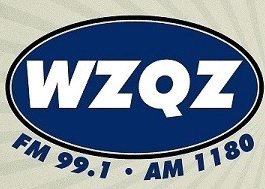A Summerville man reported to local police Monday that he had fallen victim to a sophisticated online scam, losing $3,000 in cash and sending an additional $15,000 in cashier’s checks under the false pretense of securing a government grant. The incident highlights the growing threat of social media-based financial fraud.
The victim told Summerville Police that the elaborate scheme began when he was contacted via Facebook by an individual posing as a cousin he hadn’t communicated with in some time. This imposter claimed to have recently received a substantial $150,000 Small Business Administration (SBA) grant through an “agent.”
The fake cousin then provided a link to a Facebook profile for an individual purporting to be “Agent Mary Smith,” who allegedly facilitated the grant. The Summerville man then began communicating directly with “Mary Smith” via Facebook Messenger.
Under instructions from “Mary Smith,” the victim first sent $3,000 in cash via UPS to an address in Wisconsin, purportedly for initial processing fees or taxes associated with the grant.
Following this, he sent three separate $5,000 cashier’s checks, totaling $15,000, to an address in Maryland, also allegedly for “taxes” on the promised $150,000 grant. However, “Mary Smith” subsequently claimed these checks were “not written correctly” and were “unusable.” The imposter then instructed the victim to report the original checks as stolen or destroyed and to send three more $5,000 cashier’s checks with the “correct payee.”
It was at this point that the victim grew suspicious. Upon contacting Regions Bank, where he obtained the cashier’s checks, he learned that the $15,000 in original checks were currently on hold with the Bank of Maryland. He was informed by Regions Bank that he expected to get that amount back, preventing further loss for those specific transactions. The $3,000 in cash sent via UPS, however, is likely unrecoverable.
The victim promptly reported the incident to the Summerville Police Department on Monday. He provided the reporting officer with access to his Facebook Messenger communications, and photos of the messages were taken as evidence. The case has been turned over to the department’s investigations division.
Authorities often warn the public about the prevalence of grant scams and online imposters. Legitimate government agencies do not typically contact individuals directly via social media to offer grants, nor do they request upfront payments in cash or cashier’s checks for “taxes” or “fees.” Citizens are advised to be highly skeptical of unsolicited offers that promise large sums of money in exchange for payments.








Comments